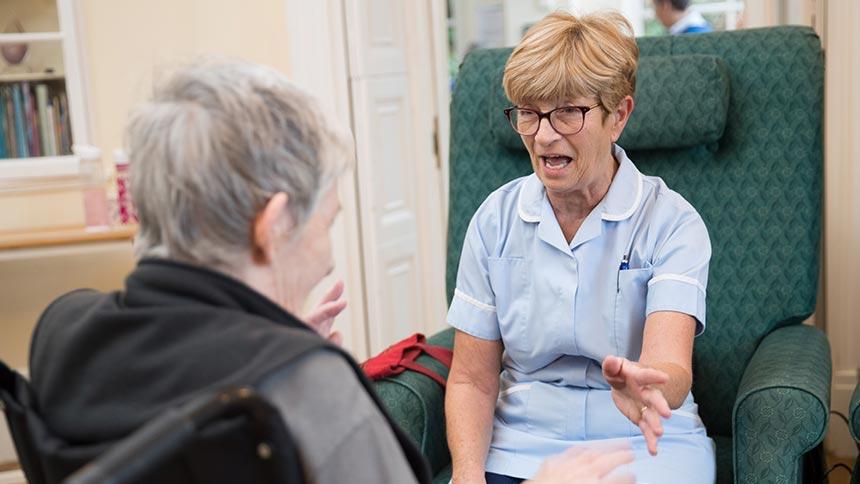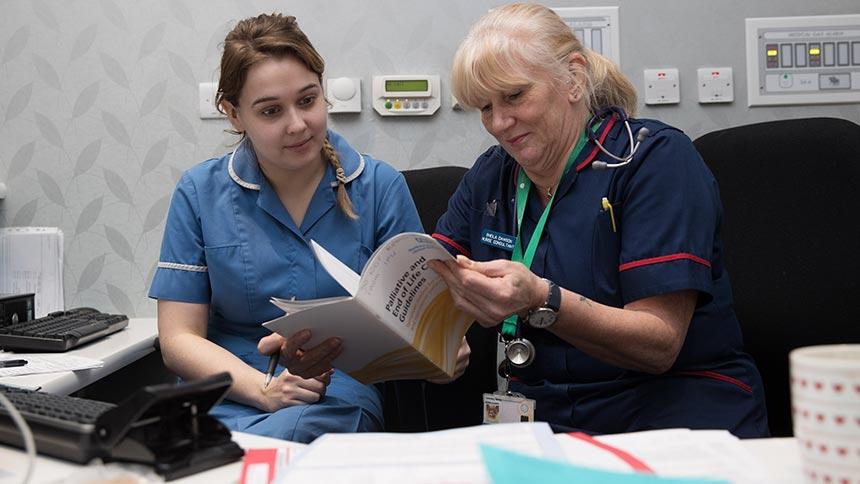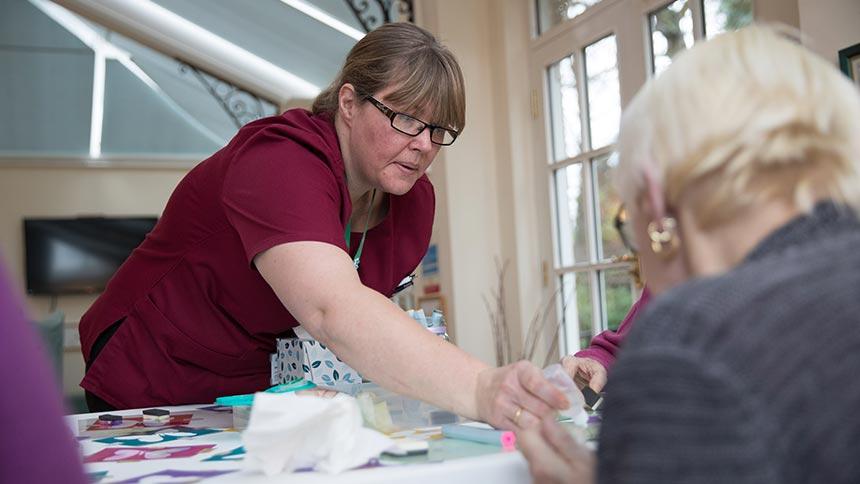Not a frightening place: Embracing a new culture
A hospice in Darlington has been improving its care and support for people affected by dementia.
As part of its aim to reach as many people as possible with its support and services, St Teresa’s Hospice, in Darlington, launched a dementia strategy last year.
Using guidance published by the charity Hospice UK and feedback from patients with dementia, carers and its own workforce, St Teresa’s created key commitments to focus on.
‘I remember hearing 20 years ago that hospices don’t care about people with dementia, but that attitude has completely turned around as the condition becomes recognised as a palliative illness,’ says Jane Bradshaw, Chief Executive at St Teresa’s.
‘We put this strategy together to show our commitment to helping people instead of writing them off.’

St Teresa's Hospice wants to reach as many people as possible
Better care
Since last summer, St Teresa’s has made great progress in educating and raising awareness among its staff.
Ongoing training in areas such as communication and patient assessment has been introduced, including a programme delivered by Alzheimer’s Society. Dementia Friends is also now a requirement for all staff and volunteers, with over 300 having joined so far.
‘Staff are now confident that they have the skills and awareness to support patients in different areas,' says Alison.
‘There was maybe a fear among some staff and volunteers that all people with dementia were aggressive and challenging,’ says Alison Marshall, Head of Care.
‘But they are now confident that they have the skills and awareness to support patients in different areas. Our care has improved and we’re seeing how we can meet people’s needs differently.’
Dementia Friends
Become a Dementia Friend or Dementia Friends Champion
Being flexible
The hospice has also been finding ways to help its staff recognise people’s individual and changing needs, and to be able to meet them.
‘There are simple things you can do, like finding out whether the person wants to be in a quiet or busy room, or not overloading them with questions,’ says Sheila Dawson, a Nurse Consultant. ‘You try different ways to communicate.’
Most of the hospice’s patients with dementia use their day hospice, but some in the later stages of the condition come in for help in managing symptoms.
‘Usually after a few days a person will go back home, but sometimes we've kept people here for weeks because it's too stressful for them to move – it’s being flexible,’ says Sheila.
Carers are also offered services such as support groups and complementary therapies.

The hospice has been focusing on key commitments
Just the start
Externally, St Teresa’s is part of a group of hospices who share education on dementia. It has also developed links with the Society and local care homes, making each other more aware of their respective services.
Hospice staff have also delivered specialist training to care home workers.
‘This is just the start for us,’ says Diane Farrell, Head of Workforce Development.
‘People have realised we’re open for business but now we’ve got to make more links within the community.’
Another commitment has been to make the hospice a more dementia-friendly environment. Better and brighter signage has been introduced in parts of the building, with plans to extend this throughout.
Such a difference
Feedback from the families of people with dementia who have been at the hospice shows that all of this work is making a real difference.
‘I felt relaxed when he was at the hospice, as I knew he was getting looked after,’ said one carer.
One carer said, ‘When he went into the inpatient unit, the board on the wall had a drawing and welcome message. It was such a good idea and made such a difference when we arrived.
‘I felt relaxed when he was at the hospice, as I knew he was getting looked after.’
Another relative said that their wife ‘loved coming to the day hospice’, where she could have a manicure and a massage. She later had a hospice befriender who she looked forward to seeing.
A different carer said that his loved one enjoyed the hospice experience, as she could mix and interact with people, and talk to staff if she needed anything.
‘The staff cared for me as well,’ said a fourth carer. ‘As soon as they had seen to my mam they looked after me and made me comfortable.’

Culture change
Jane believes that the hospice’s dementia strategy has brought about positive change at St Teresa’s.
‘Our staff have always been incredibly caring and extremely patient-centred, but I do notice that some of the conversations about dementia have changed – there’s greater sympathy,’ she says.
Diane agrees. ‘We've changed the culture,’ she says. We still have a long way to go, but we’re heading in the right direction.
‘We’re blowing away myths. People now come to the hospice and realise that it’s not a frightening place.’

